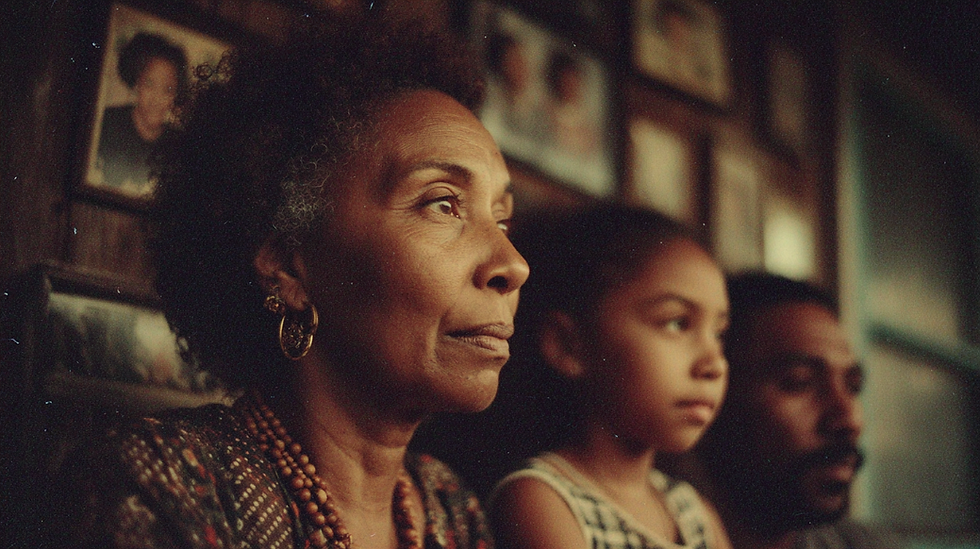Postpartum Anxiety and Depression Explained: What Every New Mom Should Know
- lisasavagelcsw6
- Jun 25
- 3 min read

Is it postpartum Depression?
Baby blues are common and short-lived. They typically include:
Tearfulness without a clear cause
Mild anxiety or irritability
Trouble sleeping
Sensitivity to stress
These symptoms usually resolve on their own with rest, support, and time.
Postpartum Depression (PPD) is more persistent and intrusive. It can begin any time within the first year after birth. Key signs include:
Deep sadness or emotional numbness
Disconnection from your baby or loved ones
Loss of interest in things you once enjoyed
Guilt, shame, or hopelessness
Changes in appetite or sleep beyond what's expected postpartum
In some cases, thoughts of self-harm or harm toward your baby
Postpartum Anxiety (PPA) can appear alone or alongside depression. It often shows up as:
Racing thoughts and persistent worry, especially about your baby's safety
Panic attacks or a constant feeling of dread
Sleep disturbances not caused by your baby
Physical symptoms like muscle tension, nausea, or dizziness
A sense of being "on edge" all the time
If any of these symptoms persist for longer than two weeks or begin to interfere with your daily life, it's time to seek help.
Why It Happens: The Complex Roots of PPD and PPA
There is no single cause of postpartum depression or anxiety. Instead, they often arise from a combination of factors:
Hormonal shifts after childbirth
Chronic sleep deprivation
Emotional adjustments to your new identity and role
Relationship changes that can feel destabilizing
Lack of support from others, whether emotional or practical
Previous mental health history or trauma during birth
You're not imagining this, and you didn't cause it. These conditions can affect anyone, regardless of background or preparation.
When to Ask for Help: Listening to Your Inner Signals
If what you're feeling is more than occasional sadness or worry—and it's not going away—it's time to talk to someone about it. Reach out if:
You feel disconnected from your baby
You're overwhelmed by guilt, shame, or anxiety
You have trouble functioning day to day
You've thought about harming yourself or your baby
Reaching out is not a sign that you're failing; it's a sign that you're trying. It's a sign that you care deeply about yourself, your child, and your ability to show up in a way that feels whole and authentic.
Getting Better Is Possible: Paths Toward Healing
Many mothers recover fully from PPD and PPA with the right support. There's no one-size-fits-all solution, but here are some effective options:
1. Therapy
Working with a licensed therapist provides a safe space to explore your emotions without judgment. Common approaches include:
Cognitive Behavioral Therapy (CBT): Helps you shift negative thought patterns.
Interpersonal Therapy (IPT): Focuses on grief, role changes, and communication.
EMDR: May help if birth trauma or past experiences are contributing factors.
2. Medication
In some cases, medication can significantly relieve symptoms, especially when combined with therapy. If you're breastfeeding, consult your doctor about options that align with your goals and values.
3. Building a Village
Isolation can make symptoms worse. Talking with other mothers who understand what you're going through can be a healing experience. Whether it's a support group, a trusted friend, or a partner, connection is powerful.
4. Gentle Self-Care
New motherhood doesn't leave much room for spa days or long getaways. But small, intentional acts matter:
Sleep when you can, even if the dishes wait
Eat foods that fuel you—think simple, not fancy
Take short walks or stretch at home
Find a few quiet minutes to breathe, reflect, or listen to music
Say yes to help, and don't hesitate to ask for it
5. Adjust Expectations
It's okay if your home isn't perfect. It's okay if your feelings are complicated. Becoming a mother is not about getting it all right—it's about finding your rhythm, even in the messiness.
You're Still You—and You're Not Alone
Postpartum depression and anxiety do not define you. They don't make you a bad mother, and they don't diminish your love for your child. If anything, your willingness to seek support speaks volumes about your strength.
Healing is not a linear process, but it is possible.
If You're Ready to Take the First Step, We're Here
At Amani Healing Center, we support mothers through every stage of this emotional journey. Our compassionate therapists understand the unique challenges that come with new motherhood. We offer virtual therapy, allowing you to connect from the comfort of your own home on a schedule that suits you.
Reach out today—not because you have to, but because you deserve to feel supported, heard, and whole. (302) 292-9942




Comments